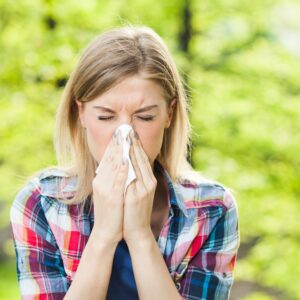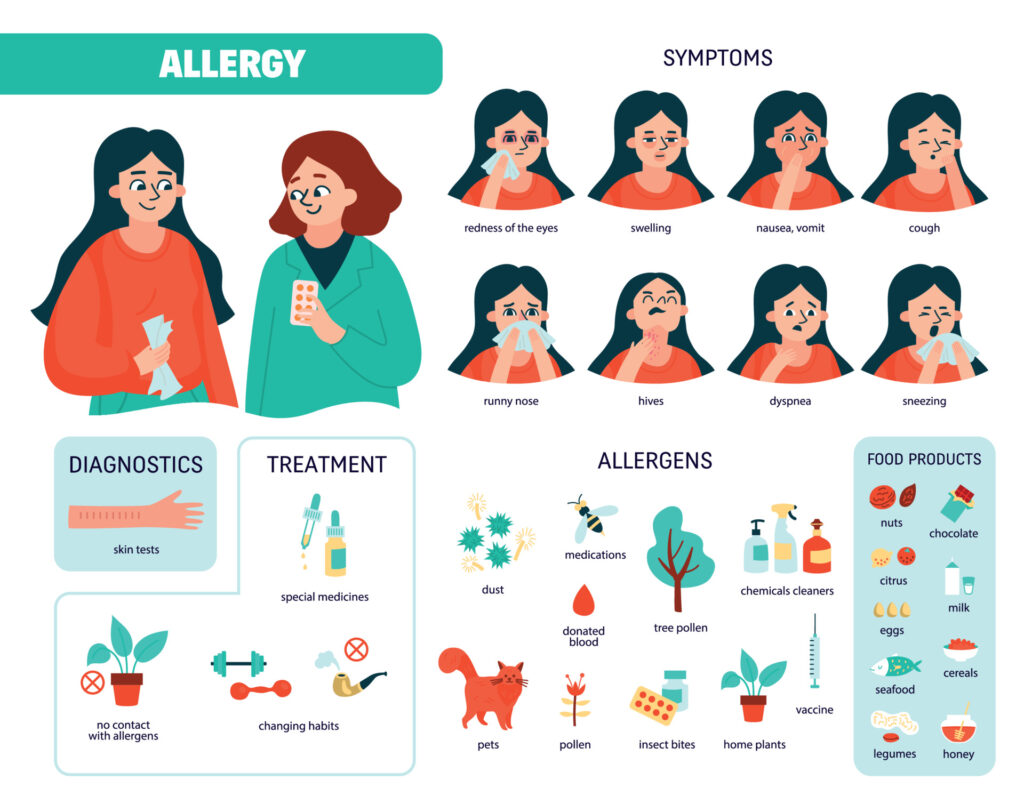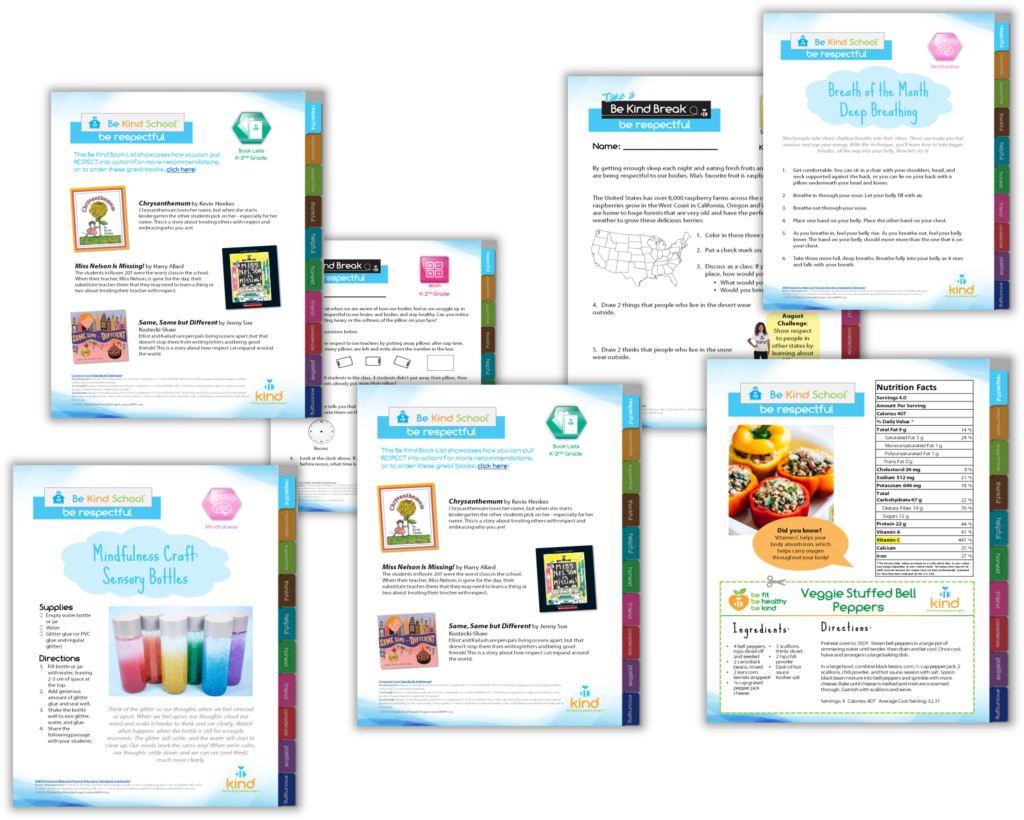- About
- Programs
- After School Classes
- All-School Assemblies
- The BE KIND Business
- The BE KIND Community Education Center
- The BE KIND SCHOOL
- BE KIND on the MOVE
- Classroom Resources
- #CyberSkills
- Family Engagement
- Fitness Programs
- Gardens
- Grace’s Group
- Health & Wellness
- Summer Programs
- Teacher Training
- Wellness Wednesday
- Athletes for Arizona
- Events
- Get Involved
- Donate
7 Common Allergy Misconceptions
- Home
- Wellness Wednesday
- Disease Prevention
- 7 Common Allergy Misconceptions
Navigating Summer Allergies?
Tips and Tricks for an Allergen-Free Summer
A study from CDC’s National Center for Health Statistics reveals that approximately 1 in 3 adults and over 1 in 4 children in the United States reported experiencing a seasonal allergy, eczema, or food allergy. Yikes! Whether you’re an allergy sufferer, a concerned parent, or simply interested in learning how to respond to allergies, join us as we explore common misconceptions, share life-saving tips, and empower you to prevent accidents and promote well-being.

What do we know about allergies?
Mayo Clinic defines an allergy as an immune system response to a substance that is typically harmless to most people. When someone with an allergy meets an allergen, their immune system overreacts and produces specific antibodies. Common allergens include pollen, dust mites, pet dander, certain foods (such as peanuts, shellfish, or dairy), insect stings, and certain medications or products. When exposed to an allergen, an individual’s immune system can overreact to harmless allergens, causing a range of symptoms, including sneezing, itching, runny nose, watery eyes, skin rashes, swelling, difficulty breathing, or digestive issues. In severe cases, a reaction called anaphylaxis can cause breathing difficulties, a drop in blood pressure, rapid pulse, dizziness, and loss of consciousness.
Allergy Myths and Misconceptions
According to the National Institute of Health, these are 7 common allergy myths.
Myth 1: Allergies are not serious and are just a minor inconvenience.
Fact: Allergies can range from mild to severe and, in some cases, life-threatening. Allergic reactions can cause significant discomfort and negatively impact a person’s quality of life. Severe allergies, such as anaphylaxis, require immediate medical attention.
Myth 2: Allergies only develop in childhood and can be outgrown.
Fact: While it is true that some allergies can develop in childhood, allergies can also develop at any age. It is a misconception that allergies will necessarily be outgrown. Some allergies may persist into adulthood or even emerge later in life.
Myth 3: Food allergies are the same as food intolerances.
Fact: Food allergies and food intolerances are different. Food allergies involve an immune system response, while food intolerances typically involve difficulty digesting certain substances. Food allergies can be severe, leading to anaphylaxis, whereas food intolerances generally cause discomfort but are not life-threatening.
Myth 4: Allergy tests are not accurate.
Fact: Allergy tests, conducted by qualified healthcare professionals, can be accurate in diagnosing specific allergies. These tests include skin prick tests, blood tests, and oral food challenges. It is important to consult with an allergist or immunologist to interpret the test results correctly.
Myth 5: Eating local honey can cure allergies.
Fact: Local honey may contain small amounts of local pollen, but the pollen types that cause seasonal allergies are usually different. Allergy symptoms are triggered by airborne pollen, not necessarily the pollen found in honey.
Myth 6: Allergic reactions only occur immediately after exposure.
Fact: Allergic reactions can occur immediately after exposure to an allergen, but they can also have delayed onset. Some reactions may manifest hours after exposure or even up to a day later. This delayed reaction can make it challenging to identify the specific trigger.
Myth 7: Allergies are most common in the Spring.
While this may be true for some, seasonal allergies can happen in any season based on what someone is allergic to, and where they are located. Certain types of allergies are more common during the summer months due to specific triggers that are more abundant during this time.
How To Prevent Allergic Reactions from Happening
- Identify and avoid known allergens.
- Read labels and ingredient lists.
- Keep allergy medications on hand.
- Communicate your allergies.
- Create an allergy-friendly environment.
- Be cautious with new products or foods.
- Follow medical advice and seek professional guidance.

What To Do What Someone Has an Allergic Reaction
- Identify and avoid the allergen if possible.
- Assess the severity of the reaction.
- If it’s a mild reaction, take an over-the-counter antihistamine as directed.
- For itching or hives, apply a cool compress or hydrocortisone cream.
- If it’s a severe reaction or anaphylaxis, call emergency services immediately (911) and, if available, use an epinephrine auto-injector following the instructions of the paramedics.
- Stay with the person and monitor their breathing and consciousness until medical help arrives.
- Seek immediate medical assistance for severe reactions or if you have concerns about the person’s condition.
So, remember, knowledge is key when it comes to allergies. By debunking myths, understanding the facts, and being prepared, we can better navigate the world of allergies. Let’s promote awareness, empathy, and safety for those with allergies. Stay informed, take precautions, and be ready to respond. Together, we can create a more allergy-friendly environment and ensure the well-being of everyone. Stay safe, stay informed, and enjoy a summer filled with kindness and good health!
Published on July 18, 2023
Questions? Comments? Want to contribute to the Wellness Wednesday Blog?
Send your ideas to info@bkpp.org.

Learn More about The Be Kind People Project®
- Programs
- After School Classes
- All-School Assemblies
- The BE KIND Academy
- The BE KIND Business
- The Be Kind Break
- The BE KIND School
- The BE KIND on the MOVE
- #CyberSkills
- Family Engagement
- Fitness Programs
- Gardens
- Grace’s Group
- Health & Wellness
- Summer Programs
- Teacher Training
- Wellness Wednesday
- Athletes for Arizona
Copyright © The Be Kind People Project | Privacy Policy

